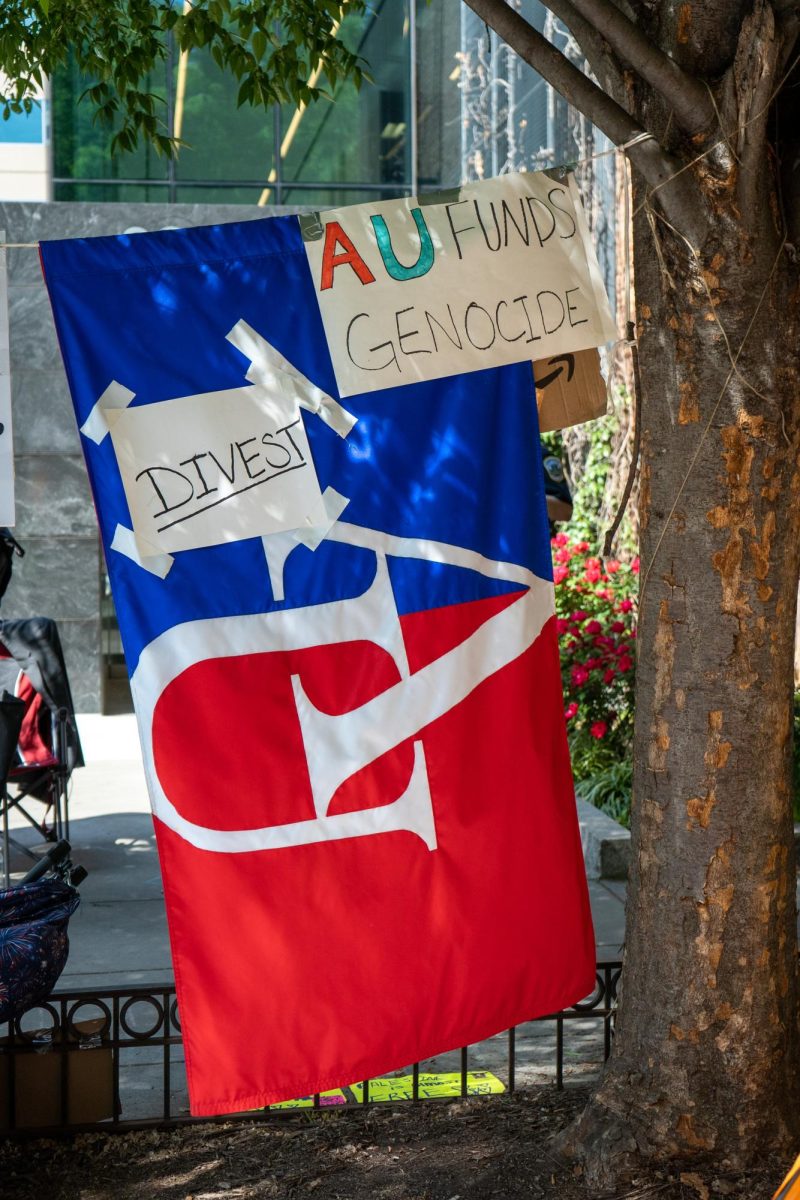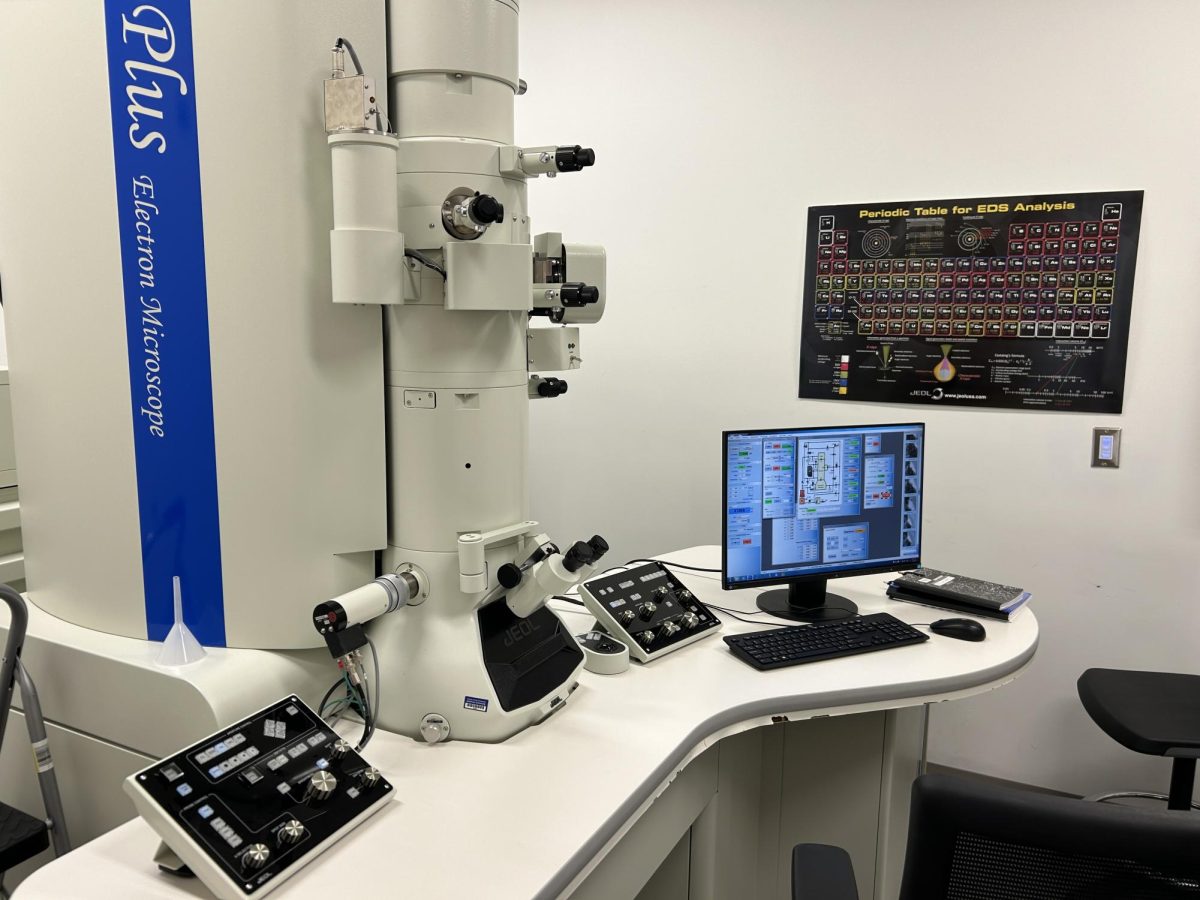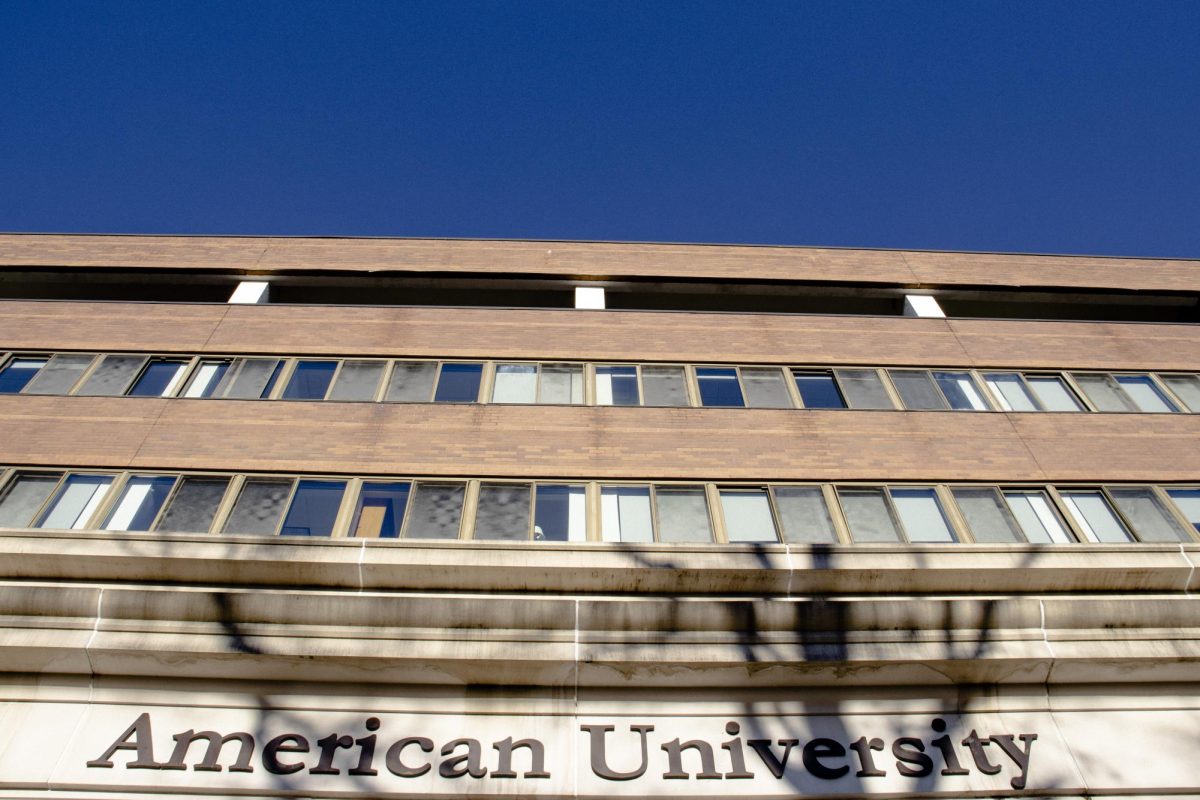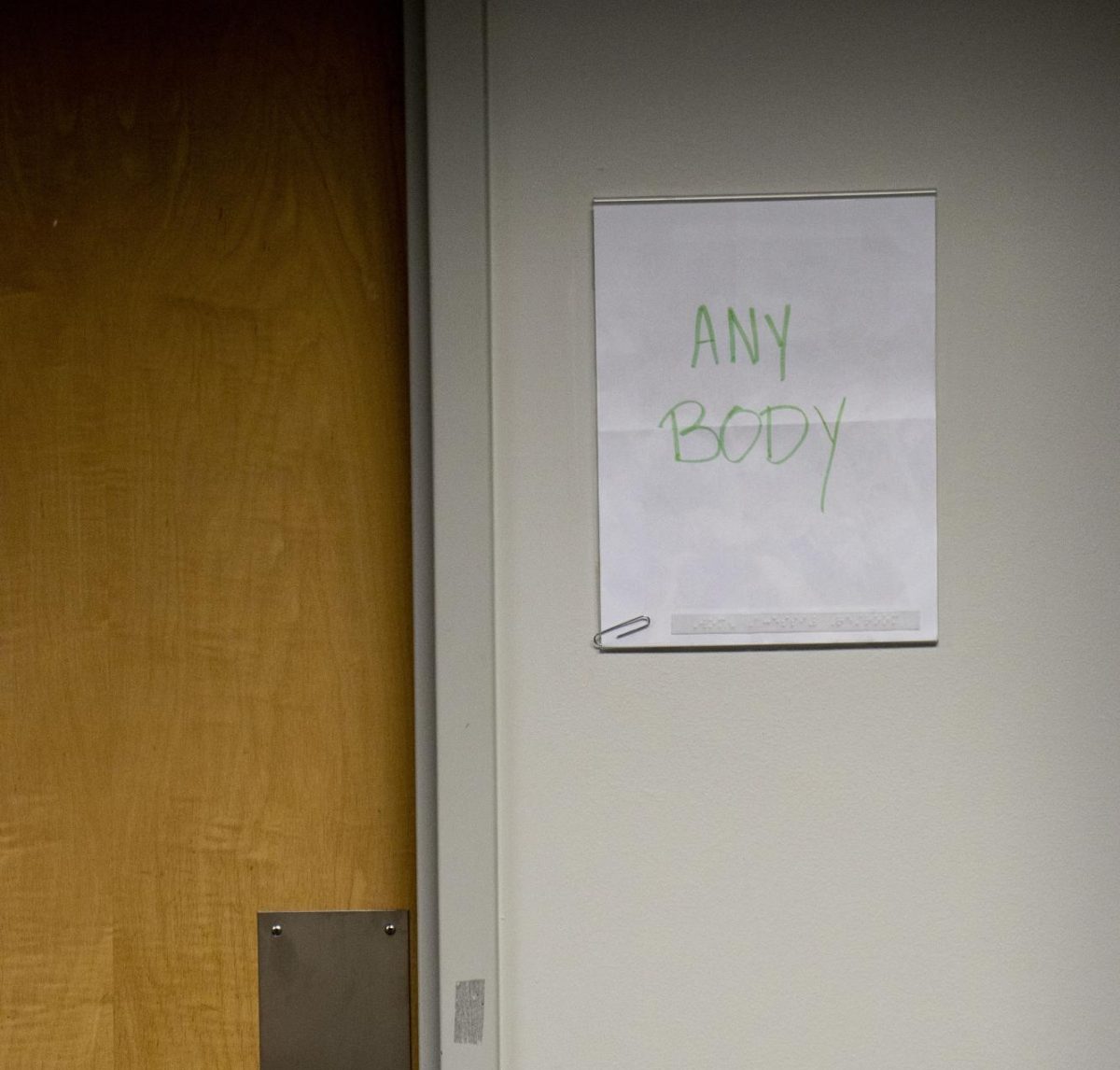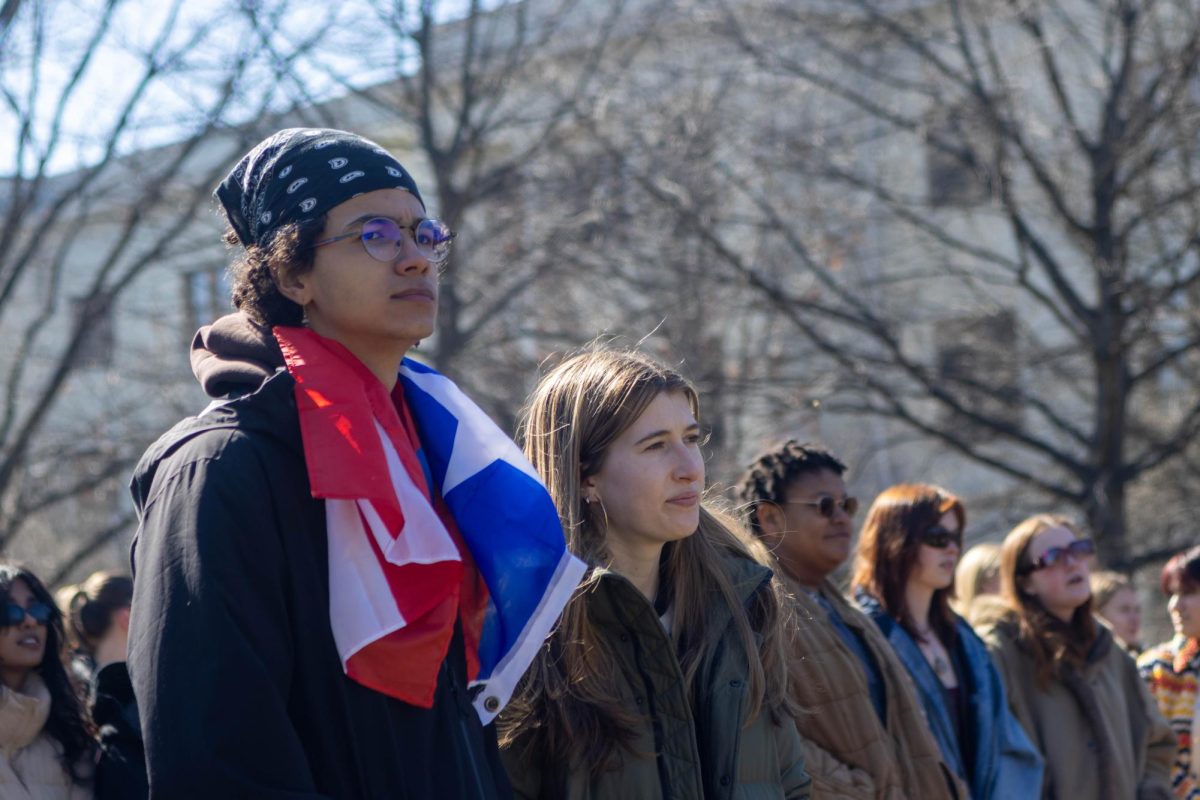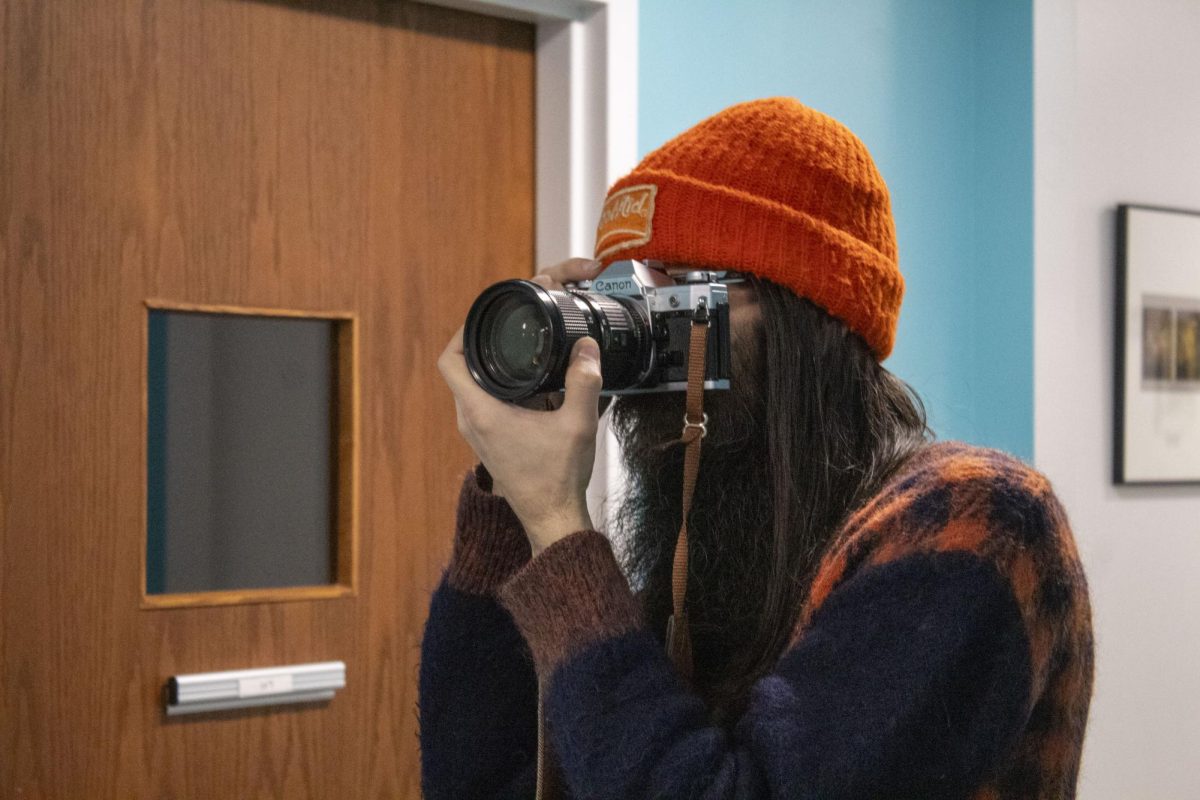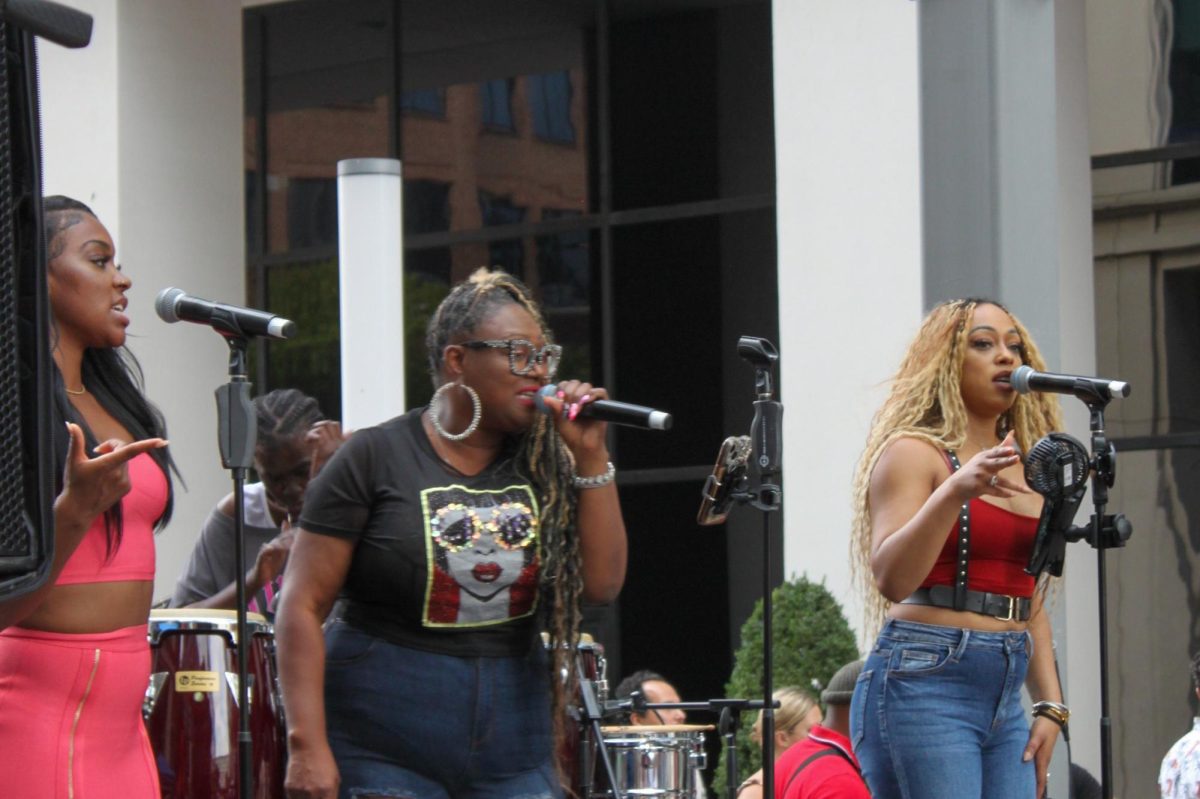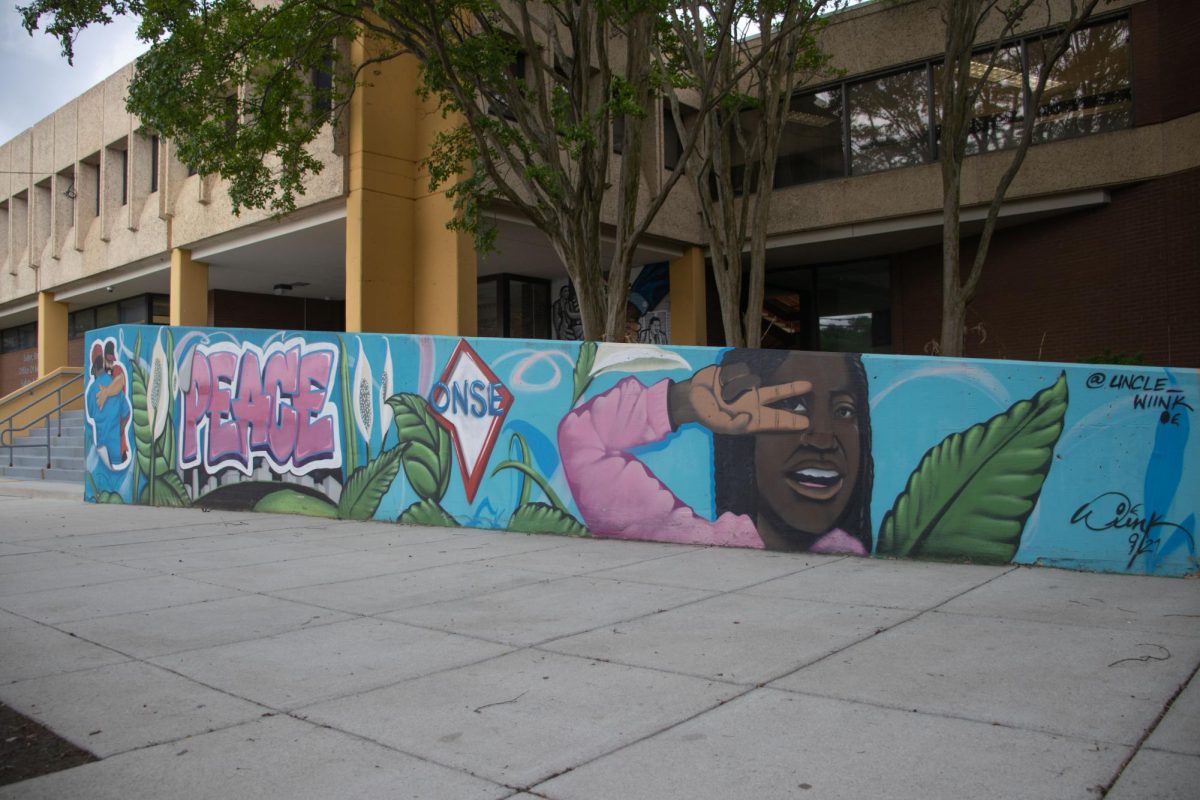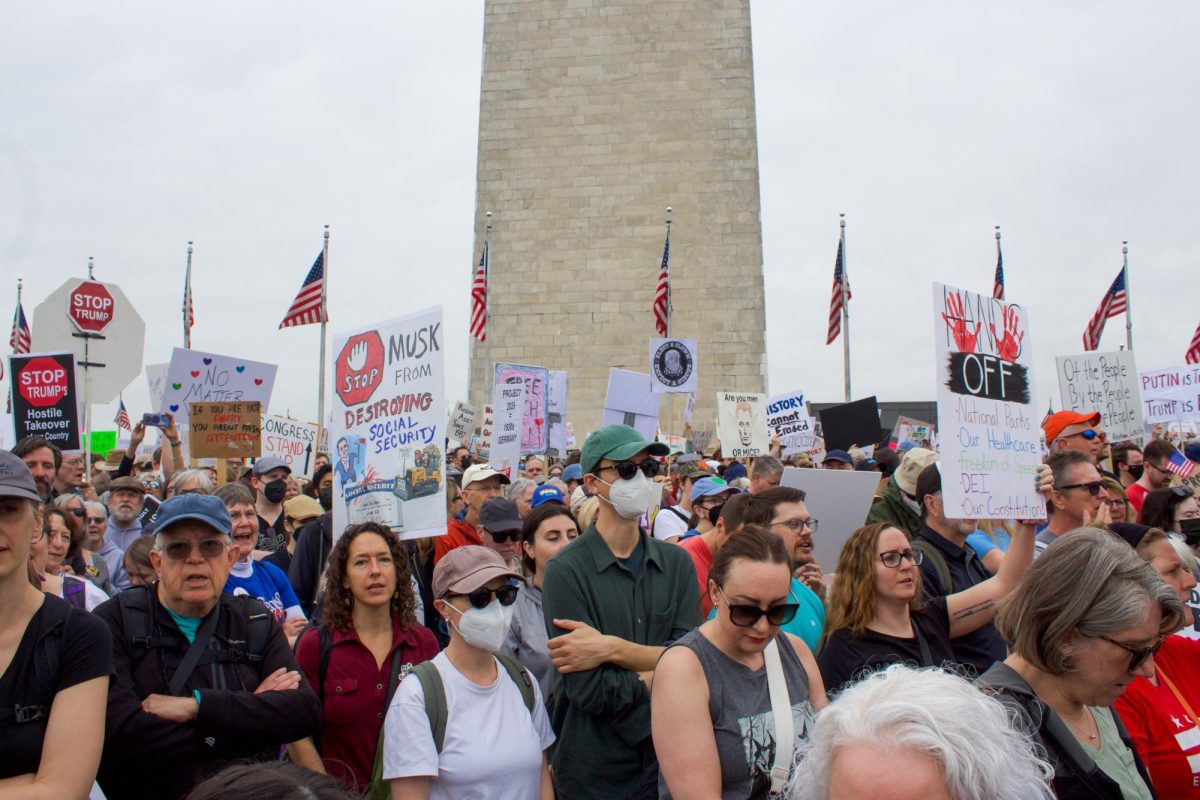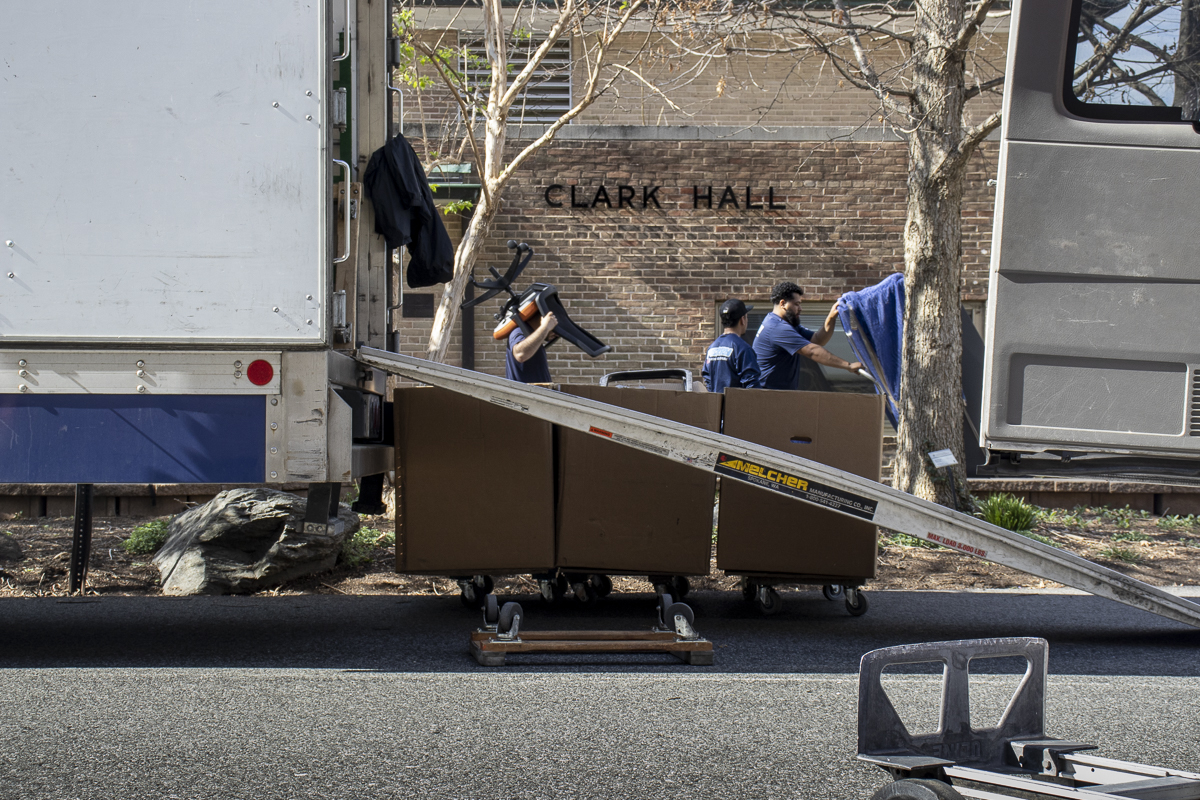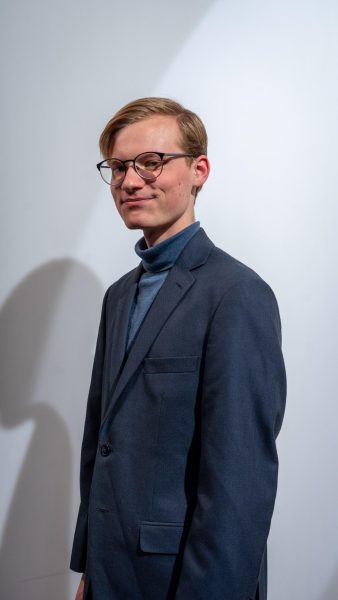Editor’s Note: The AP Style Israel-Hamas Topical Guide is “calling the present conflict between Israel and the militant Palestinian group Hamas a war, given the widespread and ongoing nature of military operations in Israel and Gaza.” The guide also recognizes the antecedent context of a 75-year Israeli-Arab and Israeli-Palestinian conflict. AWOL is following that guidance in our reporting. Any feedback on this article can be emailed to [email protected].
Nonprofit tax filings, an American University trustee’s ties to the defense industry and university policies show potential subjects for the demands listed by protesters at George Washington University.
Protesters occupying the University Yard at GW released demands in an April 27 Instagram post.
Reem Lababdi, a GW sophomore, is a designated media liaison for the protesters. Community guidelines discourage other protesters from speaking to the media. She said one of the protest’s demands is for investment transparency in the endowment.
“Students on GW’s campus are facing food insecurity, housing insecurity and yet we don’t know where our money is going, and we certainly deserve to know that it’s not going to go to fund the genocide of our people,” Lababdi said.
The International Court of Justice determined in January that Israel must prevent the genocide of Palestinians in Gaza and provide services and humanitarian aid to Palestinians in Gaza. The ruling came after a submission South Africa’s delegation made to the Court accusing Israel of violating the Genocide Convention. Israel’s delegation disputes that claim and said they maintain their commitment to the Genocide Convention, according to a court proceedings.
A coalition of eight district area Students for Justice in Palestine groups – the DMV SJP Coalition – released demands calling for divestment from weapons and technology companies selling to Israel, an end to academic partnerships with Israel, for the universities to drop charges against pro-Palestinian organizers and protect pro-Palestine speech on campus, according to an April 27 Instagram post by multiple organizations.
Tax filings, abroad programs, the board of trustees and university policies at AU and GW – where the protests are taking place – show where change could occur if universities respond to the demands of protesters.

The April 27 post also listed specific demands for individual universities including AU.
Protesters called on AU to end student exchange and study abroad programs with Israel, be financially transparent in investments, refuse donations where the money is allegedly complicit in harm done to Palestinians and reverse the probation of AU’s SJP chapter which started in March.
The post also included demands for Gallaudet University, George Mason University, Georgetown University, Howard University, University of Maryland and University of Maryland, Baltimore County.

Investments and programs
The coalition called for the disclosure of endowments and investments for each university in the coalition.
Will Youmans, an associate professor of Media and Public Affairs at GW, said he visited the protests as an observer and advocate. He said the first demand for disclosure is a “no-brainer.”
“Institutions have to be transparent about their investments, what they’re making money off of,” Youmans said. “It’s a basic corporate social responsibility.”
At GW, that endowment was about $2 billion in 2022, according to a 2022 GW endowment report.
GW has over $1 billion listed in other securities investments, according to 2021 filings in ProPublica’s Nonprofit Explorer.
The 2021 tax filings are the most recent publicly available. The filing does not disclose where money might be invested.
GW had about a million dollars in expenditures in abroad programs in 2021 and 49 employees or agents in the Middle East and North Africa region, according to GW IRS filings.
All of GW’s abroad programs are listed in the North Africa and the Middle East category are in Israel, according to the university’s study abroad program listings.
Additionally, GW spent about $200,000 on grant making and $13,000 on fundraising in the region.
Finally, GW awarded about $100,000 in grant money to a country in the Middle East and North Africa region and about $100,000 in scholarships to foreign individuals in the region, according to the filing.
Meanwhile, the AU endowment was about $900 million in 2021, according to ProPublica’s Nonprofit Explorer and IRS tax filing data. AU also had about $450 million other securities investments in its 2021 tax filings.
The coalition also demanded that AU end all study abroad and exchange programs in Israel.
AU expenditures for abroad programs in the Middle East and North Africa, a regional category in the tax documents, totaled about $360,000 in 2021, according to the filing.
AU offers abroad programs in Tel Aviv, Jerusalem and Eilot, Israel, according to the study abroad portal. AU also offers two programs in Morocco, one in Jordan and one in the United Arab Emirates that could also be included in those expenditures.
Investments are also included in the filing, but none are listed for the Middle East and North Africa category.
Elizabeth Deal, assistant vice president for Community & Internal Communication at AU, directed AWOL to a statement released by AU President Sylvia Burwell on April 21 when asked for comment on this article.
GW did the same, directing AWOL to advisories and statements.
AU President Sylvia Burwell released a statement on April 21 opposing boycotts and divestment from Israel, following an AU Student Government Senate resolution calling for divestment.
“Such actions threaten academic freedom, the respectful free expression of ideas and views, and the values of inclusion and belonging that are central to our community,” Burwell wrote.

A trustee’s former ties
According to the April 27 post by DMV SJP, the coalition is demanding that AU refuse donations from donors whose money is either directly or indirectly complicit with the occupation and destruction of Palestinian land and life.
While many donors and their donations are not listed, the members of the board of trustees are available.
The AU Investment Committee is responsible for overseeing policies and issues related to the university’s endowment and investment of funds, according to the AU Board of Trustees webpage.
The committee is tasked with considering social issues related to investments, developing investment policy and recommending annual spending policy among other responsibilities, according to the webpage.
Wesley Bush, a current member of AU’s board of trustees and chair of the Investment Committee, was formerly the CEO of Northrop Grumman — a global aerospace, defense and security company. The company creates weapons, including the collaborative production of the F-35 fighter jets, according to Northrop Grumman’s website.
The State Department authorized additional F-35 fighter jets to be sold to Israel in late March, according to The Washington Post.
The DMV SJP has not named specific companies to target for divestment. The advocacy group American Friends Service Committee, a Quaker group established in 1917, has listed Northrop Grumman as a company to divest from, according to the organization’s website.
Bush’s appointment was protested by students and faculty who began a campaign to remove him over his ties to the defense industry, according to a 2021 Eagle article.
David Vine, an AU anthropology professor, protested Bush’s appointment. His research interests focus on military foreign policy and human rights, according to his staff profile.
“I was appalled when the board voted Wes Bush, the former CEO of Northrop Grumman, to our board which represents an embrace of the military industrial complex and war profiteering by the school, rewarding someone who made money off war and death,” Vine said.
Vine said that wasn’t something he wanted himself or the school to be a part of.
AU Communications and Marketing did not respond to questions about the board of trustees and Bush’s role before publication. Multiple organizations where Bush is a member of the board of directors also did not respond to requests for interviews with a comment from Bush before publication.
Other trustees also have influence over university investments and are from industries like insurance, venture capital, public relations and transportation, among others, according to the trustee website.
This academic year Bush and 10 other trustees will go out of office, according to the trustee website. Vine said he doesn’t know what Bush’s impact on the board since being placed in the role.
“The board, generally speaking, acts with so little transparency it’s very difficult to know what his impact has been,” Vine said.

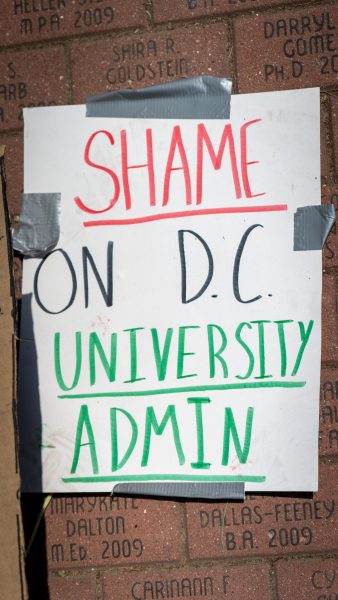
Actions against students
Although trustees and donors have some say in policies and some university decisions, they don’t have control over daily student life. That task is left up to administrators. In recent protests, administrators of Washington-area universities have been acting on those responsibilities.
Universities have taken new actions against demonstrators after the encampment protest on GW’s campus began April 25.
Protesters camping on the University Yard are on university property. Demonstrators can only demonstrate legally on private property with the consent of the property owner and if the owner consents, protests must follow their rules, according to the ACLU of DC website.
In a response for comment on this article, Director of Media Relations Kathleen Fackelmann referred AWOL to an April 28 statement attributed to GW President Ellen Granberg and Chris Bracey, GW’s provost and executive vice president for academic affairs, and a separate April 29 update.
The second encampment on H Street is not controlled by the university and is the responsibility of the Metropolitan Police Department, according to an April 28 statement.
Granberg and Bracey wrote in an April 25 statement that students may demonstrate until 7 p.m. that day if they followed the student code of conduct and free expression guidelines. Students remained on campus after 7 p.m. and have continued protesting.
The Code of Student Conduct lists community disturbance, non-compliance with GW officials and police officers and being on university premises without permission as misconduct, along with other acts.
Students are free to express their opinions publicly and privately, according to GW’s code of conduct.
“They shall be free to support causes by orderly means that do not disrupt the regular and essential operation of the institution,” according to the code.
According to reporting from the Washington Post, the GW administration wanted police to clear the yard April 26, but the Metropolitan Police Department declined to do so because of the optics of moving against a small group of peaceful protesters.
A DMV SJP post shows a person pulled on by GW officers and protesters. The post describes the incident as a de-arrest. According to an April 29 GW statement, the student crossed the barrier created by GW police and GW police were attempting to escort him out.
As of May 2, no arrests have taken place at the GW protests.

GW is able to temporarily and immediately suspend students, exclude them from campus and revoke housing for 21 days pending student proceedings, according to the student conduct code. The university can take actions to limit activities in the community if they find that a person poses a threat to normal university functions, according to the code.
GW placed six students on temporary suspension, charged those students with nine misconduct charges each and revoked their housing – the original post said seven students, but was amended – according to an April 27 DMV SJP post. DMV SJP later posted a screenshot April 30 of the email students received notifying them of the suspensions.
“The fear of suspension, the fear of repression, is nothing compared to the fear our brothers and sisters in Gaza face every day of being ethnically cleansed, bombs being dropped on their heads, on their houses, their families being slaughtered,” said Lababdi, a media liaison for the coalition.
The DMV SJP demanded that each university drop the charges against pro-Palestine student organizers, according to the April 27 post.
At AU, students that use tents to protest at AU and do not comply with de-escalation tactics face arrest and other penalties, according to an April 25 statement addressing protests at other universities.
“While expressive activity may occur in outdoor spaces consistent with the Free Expression policy, the use of tents and other camping equipment at this time is not permitted and will be immediately addressed,” the finance memo said.
The memo also said demonstrators not affiliated with the university would be removed.
The university also placed the AU SJP chapter on disciplinary probation March 20, according to the AU Student Affairs website. The chapter failed to comply with the directions of university officials, according to the website.
The final demand specific to AU in the April 27 Instagram post is for the reinstatement of the chapter.
Lababdi said protesters at GW have been met with student conduct hearings and police. She also said she wants to recenter the gaze on Gaza.
“The encampments are a vehicle for mobilization, but they should not be the focus,” Lababdi said. “This is not about us.”
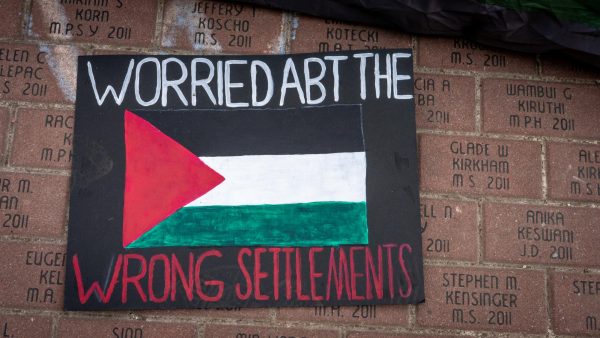
Correction: The AU SJP chapter was placed on disciplinary probation. A previous version of the article listed their status as suspended in some sections of the article.


